9 Most Influential Serbs Throughout History
Serbia, located at the crossroads of important routes, is a country of turbulent history, on which many great powers fought for their interests.
Under different circumstances in each period, starting from the medieval times up to the present day, Serbia gave birth to many world known great people who influenced the culture, science and other areas of life, not only in Serbia, but way outside it's boundaries.
Many people are not familiar with Serbia's great history and all the remarkable people who have their origins here. That's why I decided to create a list of most influential Serbs and share it with you.
1. Nikola Tesla

Without any doubt the greatest Serbian scientist and one of the world's most famous inventors and scientists in the fields of physics, electrical engineering and radio broadcasting. The most significant inventions of Tesla are magnetic field, polyphase system, induction motor, synchronous motor and Tesla coil. But his biggest contribution is the design of the modern alternating current electricity supply system. He was a key figure in building the first hydroelectric plant at Niagara Falls.
After his father's death, due to lack of finances, he left his studies in Graz and continued in Prague Polytechnic, but he never managed to complete.
He went to New York where he worked with Thomas Edison, but in Edison's company Tesla was not adequately paid for his innovations and in 1885 he left Edison, and founded his own company "Tesla Arc & Light Co."
Nikola Tesla is the author of more than 700 patents, and with Faraday, he is regarded as the greatest inventor in the history of science. In his honor the unit of magnetic induction strength bears his name, Tesla (T).
He died poor in 1943 in New York. Urn with his ashes are located in Tesla Museum in Belgrade, Serbia.
2. Saint Sava
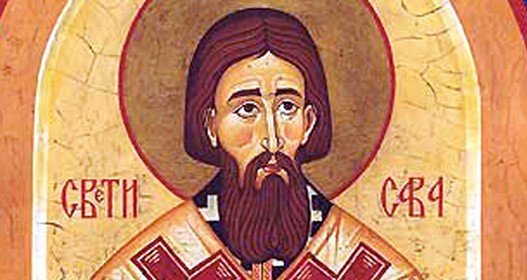
Saint Sava was the Serbian prince, monk, writer, diplomat and the first archbishop of the Serbian Orthodox Church. He was born as Rastko Nemanjić around 1173, the youngest son of Grand Duke Stefan Nemanja and brother of kings Vukan and Stefan the First-Crowned. He had a good education at the palace of his father, but, aspiring towards a better life, he secretly abandoned the palace and went to the Russian St. Panteleimon Monastery on the Mount Athos (Holy Mountain).
After his father Stefan left the throne and handed it to his son Stefan the First Crowned in 1196, at the invitation of Saint Sava, he also went to the Mount Athos. There was a deserted monastery called Hilandar at the holy mountain, for which Sava and his father Stefan got the idea to rebuild and transform it into a Serbian monastery, which they did with the consent of Alexios III Angelos, Byzantine Emperor. The monastery eventually became the center of Serbian education, the first Serbian high school and the center of Serbian medieval literature.
Saint Sava was aware that the Serbian people can not create a national culture without education, and for this reason he returned to Serbia to serve to his people, where he stayed for 10 years, until 1217, when he returns to the Mount Athos.
In 1219 Sava persuaded the Ecumenical Patriarch and the Emperor of Nicaea to approve the independence of the Serbian church to the status of archbishopric as they have done. Sava was appointed the first archbishop of Serbia. After returning from his second pilgrimage in the Holy Land, he died in 1236.
One of the biggest churches in the world, The Church of Saint Sava in Belgrade is dedicated to him. This church is built on the site where the Ottomans burned his remains in 1594.
3. Karađorđe
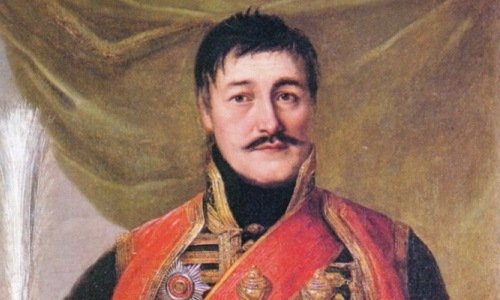
The Great Leader Đorđe Petrović or popularly called Karađorđe (Black George), was one of the greatest military leaders in the long history of the Serbian people. After centuries of slavery under the Ottoman Empire, with his heavy temper and being often cruel man himself, he was just what Serbia needed in those tough times. He managed to put fear into the Turks and led the people in a long-awaited freedom from the Ottoman Empire.
We can say that he is founder of modern Serbia as he was elected in 1804 as the leader of the First Serbian Uprising that aimed at separating Serbia from the Ottoman Empire. The First Serbian Uprising came after big Slaughter of the Knezes (knez = prince, duke), assaults of notable Serbs by Ottomans. He personally led armies against the more numerous Ottomans army in several battles.
In 1806, after he found out that his brother raped several Serbian girls, angry because his brother does not respect the laws which he tried to establish, he beat up and hanged him.
The Black George was killed in 1817 by the order of Prince of Serbia Miloš Obrenović, and this crime is known as the biggest disgrace in the history of Serbia.
Napoleon said about Karađorđe:
“It is easy for me to be grand with our well-experienced army and vast financial means, but down in the south, in the Balkans, there is a marshal who had arisen from the simple peasant folk, and who gathered his sheepherders, and without sophisticated weapons with just the cherry cannons, shook the foundation of almighty Ottoman empire thus freeing his enslaved people. That is Karađorđe, to him goes all the glory of being the greatest marshal.”
4. Vuk Stefanović Karadžić
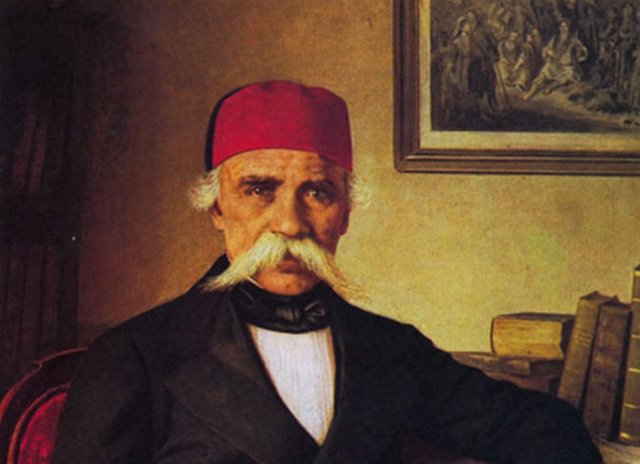
Vuk Stefanović Karadzić was a Serbian philologist, reformer of the Serbian language, collector of national poems and author of the first dictionary of Serbian language. Vuk is the most significant figure in the history of Serbian literature.
Vuk Stefanović Karadžić was born in 1787 in a family where the children were dying, and he was named Vuk which means Wolf in order to be protected from witches and ghosts.
In 1813 he moved to Vienna where he met Jernej Kopitar, censor of Slovenian books. On Kopitar's instigation he started searching for the Serbian national poems, the Cyrillic alphabet reform and the fight for the introduction of national language in the Serbian literature. By Vuk's reforms in the Serbian language was introduced phonetic spelling, a Serbian language suppressed Slavonic-Serbian language which at that time was the language of educated people.
He used principle "Write as you speak, read as it is written", creating one of the most practical alphabets in the world.
5. Ivo Andrić
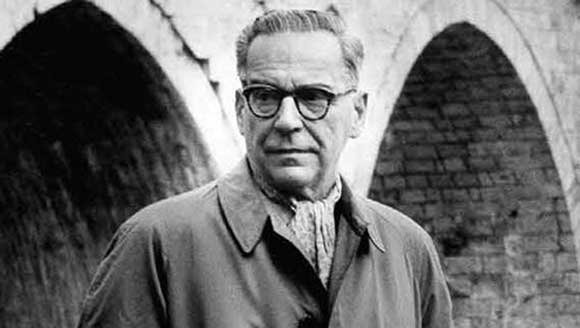
Ivo Andric, born in 1892 in Travnik, Austrian-occupied Bosnia, was Serbian and Yugoslav writer and diplomat of the Kingdom of Yugoslavia. He was a member of Young Bosnia movement and a great fighter for the liberation of the South Slav peoples from Austro-Hungarian monarchy.
In the early years he began writing poetry and already in 1918 he published his first book "Ex Ponto", prose poems. In June 1924 in Graz, he defended his doctoral thesis "The Development of Spiritual Life in Bosnia Under the Influence of Turkish Rule", and later in 1926 he became a member of the Serbian Academy of Sciences and Arts. His most famous work is the novel "The Bridge on the Drina" for which he won the Nobel Prize for Literature in 1961.
He died in 1975 at age 82, and urn containing his ashes was buried at the Alley of Distinguished Citizens in Belgrade's New Cemetery.
6. Mihajlo Pupin
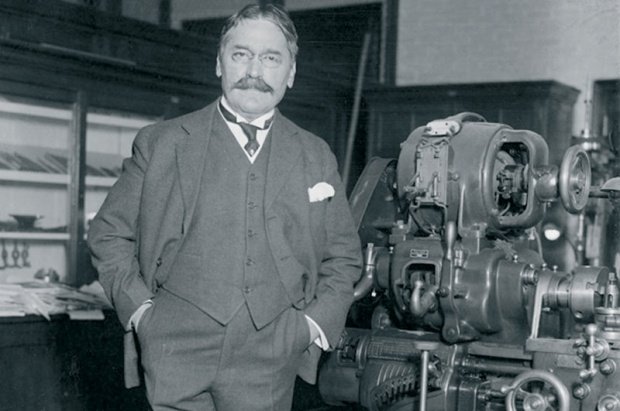
Mihajlo Pupin, born in 1854, was Serbian scientist and inventor, honorary Consul of Serbia in the United States. He was also one of the founders and long-time president of the Serbian National Alliance in USA.
In addition to scientific activities, Pupin devised many inventions, of which 24 patents for his comprehensive work has received many awards and recognitions. His discoveries were mainly in the field of telephony, telegraphy and radio. The most known discovery was procedure which allowed the transfer of a written or voice signals at a very long distance, that hasn't been possible before Pupin's invention. The procedure got the name by Pupin. Also, he was a professor at Columbia University for the forty years.
Pupin was awarded by the Pulitzer Prize in 1924 for an autobiographical work "From Immigrant to Inventor".
7. Gavrilo Princip
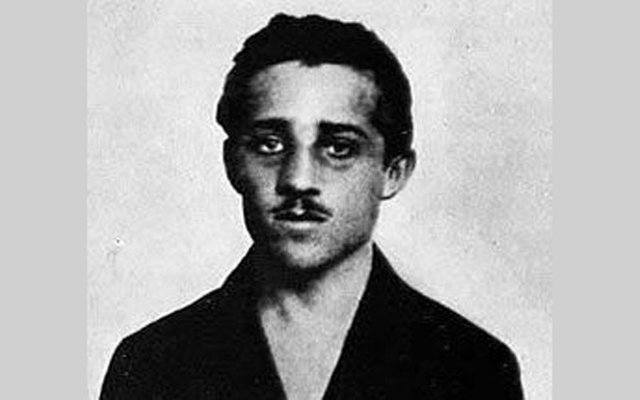
Gavrilo Princip, born in 1894, was the Serbian revolutionary and a member of the revolutionary movement Young Bosnia. In June 28, 1914 in Sarajevo he killed the Austro-Hungarian Archduke Franz Ferdinand and his wife Sophia, which was the reason for the start of the First World War. After it was announced in March of 1914 that Franz Ferdinand will come in Sarajevo on June 28 to attend at the military exercise, Gavrilo Princip and his associates got the idea to kill the Austro-Hungarian Archduke, because it was considered as a provocation and preparing for the attack on Serbia.
There were no reports that the official authorities of the Kingdom of Serbia participated in the organization of the assassination, but it was done with help of the organization named "Black Hand" led by Dragutin Dimitrijević Apis, a man on a high position in the army of Serbia. Austro-Hungarian authorities used this assassination to announce war against Serbia on July 28, 1914, which quickly grew into the First World War.
Gavrilo Princip was sentenced to 20 years in prison, which he served in the Czech Republic, where he died in 1918 of tuberculosis, just before the end of First World War.
8. Sava Savanović
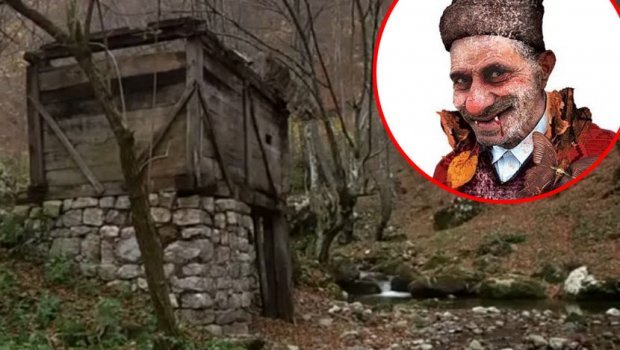
He might not be that influential, but he was quite an interesting historical figure, so I decided to include him in this list.
Many of you probably haven't heard about Sava Savanović, but he is the first ever known Serbian vampire, and one of the first vampires ever. After his death, it is believed that Sava Savanović was said to have lived in an old watermill on the Rogačica river, at Zarožje village on the west of Serbia. It was said that he killed and drank the blood of the millers when they came to mill their grains.
Also, the word vampire originated from Serbian language and is one of our most popular words. So yes, I suppose that it is our fault for the Vampire diaries. No need to say thanks.
9. Novak Đoković

Nowadays, when the economy in Serbia is very bad, low standard and people work just to survive, there is not many things which bring joy and happiness to our people. Novak, the best tennis player in the world (I know he dropped to 2nd place behind Andy Murray now, but he will only return stronger) and one of the greatest players in tennis history, represents our country in the best possible way.
Most of our people looks at him as a member of the family, sharing his suffering after tough losses and celebrating together all the important wins. After he won his first Wimbledon, about 100.000 people organized a spectacular welcome at the main Belgrade square. Maybe he is not influential as some leaders, scientists, but for the way he represents our country, he deserved to be on this list.
Images 1, 2, 3, 4, 5, 6, 7, 8, 9
Hope you found this post interesting! Don't forget to upvote and resteem it. Follow @teofilex11 to stay updated about future posts.